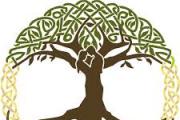Development of individuality and personal qualities. How to develop positive personal qualities. What Skills Have Helped Famous People Succeed?
Psychology faculty
Department of General and Experimental Psychology
Course work
On the topic: "The formation of personal qualities (where and how do personal qualities appear in a person)"
Moscow 2010
Introduction
Chapter 1 A look at the nature of personal qualities in a psychodynamic direction
Chapter 2 Personal qualities in the dispositional direction of personality psychology
Chapter 3 Formation of Personal Qualities in Behaviorism
Chapter 4 The origin of personal qualities from the standpoint of the theory of personal constructs by J. Kelly
Chapter 5 Personal qualities in the humanistic direction of psychology
Chapter 6 The origin of personal qualities from the standpoint of the phenomenological approach of Carl Rogers
Conclusion
Bibliography
Introduction
At present, psychology cannot unequivocally answer the question: what is a person? Despite the fact that the concept of personality is fundamental for many well-known areas of psychology, a common understanding of it has not been developed to date. The theme of the course work is "Formation of personal qualities (where and how personal qualities appear in a person)". Understanding how personality traits are formed and where they come from will allow us to understand to some extent the very nature of personality. This problem is relevant for the entire world psychology, and as long as there is no consensus about what a person is and what determines it, psychological science will be fragmented. In this course work, we do not set the task of developing a unified approach to understanding the personality. The purpose of the work is to analyze and summarize the most well-known of the existing approaches to the issue of the origin of personal qualities, as well as a multilateral disclosure of the concept of personal qualities, based on various theories.
In everyday life, a person constantly turns to his personality, interacts with other people through his personality, and encounters various personal manifestations. Even the work of a practical psychologist, like any communication between people, affects the personalities of the subjects of communication to varying degrees. With all this, the concept of personality and personal qualities remains vague and uncertain, which creates a large field for scientific research. One of the main issues of world psychology is the question of understanding and defining personality. At the moment, according to various sources, there are more than a hundred different definitions of personality, and it cannot be said with complete certainty that all of them are erroneous. That is why it makes sense to generalize various approaches to reveal the concept of personality.
Chapter 1. A look at the nature of personal qualities in a psychodynamic direction
Referring to the book "Theories of Personality" by Hjell and Ziegler, within the framework of the psychodynamic direction, we will consider the theories of Sigmund Freud, Alfred Adler and Carl Gustav Jung. The founder of this trend is Z. Freud. To reveal the origin of personal qualities, let's turn to the personality structure proposed by Freud, in which three components of personality are distinguished: I, super-I and it (ego, super ego, id). "It" includes the primitive, instinctive and innate aspects of the personality that are completely unconscious. "I" is responsible for making decisions. "Super-I" is a system of values and moral norms. Analyzing the development of personality in this system of views, we can conclude that personal qualities are formed in a person under the age of five. In this age period, a person's personality goes through several stages of its development, after which, according to Freud, the basis of personality is no longer amenable to any changes. In psychoanalysis, it is said that the nature of the stage of development is determined by the way in which the vital energy "libido" finds an outlet. Those. at each psychosexual stage, the energy "libido" has its own mode of expression. At critical moments, vital energy seeks an outlet, in the way that is inherent in the corresponding stage of development, as a result of which any need arises in the child. The nature of the need depends on what psychosexual stage the child is at. Depending on how this need is satisfied, and whether it is satisfied at all, various personality changes can occur. We can say that it is at these moments that personal qualities are formed.
For example, let's take the first psychosexual stage - oral. The zone of concentration of "libido" at this stage is the mouth, as a result of which the child has needs associated with this zone, i.e. sucking, biting, chewing, etc. If these needs are not satisfied enough, then, according to Freud's theory, this will lead to fixation at the oral stage, which will be expressed in the future in human behavior, which will be determined by personal qualities. If, however, these needs are met excessively, then in this case, fixation at the oral stage will also occur, but of a different kind, which will also cause the formation of certain personality traits and certain behavior.
In the process of passing through all stages of development, by the age of five, the child will already have a formed system of personal qualities, which in the future will become more detailed.
Thus, it can be said that the personal qualities of a person are formed on the basis of the satisfaction or dissatisfaction of instincts that arise at various stages of psychosexual development, and are determined by the nature of the release of the vital energy "libido".
Comparing the concept of stages of psychosexual development with the theory of V.D. Shadrikov, one can point out a certain similarity, which lies in the fact that, according to V.D. Shadrikov, the satisfaction or non-satisfaction of the needs of the child calls for positive or negative emotions. According to the principle of the unity of needs, knowledge and experiences, certain motivations are fixed in a person as a result of satisfying or not satisfying needs. Fixed motivations determine in the future the personal qualities of a person.
Let us next turn to the individual psychology of Alfred Adler. The main position of this theory is the judgment that a person is a single, self-consistent organism. Adler says that not a single manifestation of vital activity can be considered in isolation, but only in relation to the personality as a whole. The main mechanism that determines the development of certain personal qualities is the subjective feeling of inferiority. Adler believed that at birth, in all people, the organs of the body are not developed to the same degree, and subsequently it is the organ that was initially weaker than the rest that suffers. This is what leads to feelings of inferiority. According to Adler, all human behavior in the future is aimed at overcoming this feeling of inferiority, since another principle of Adler's concept is the desire of the individual for perfection. Here we can draw an analogy with the theory of abilities of V.D. Shadrikov. According to this theory, since birth, all people have the same set of abilities, but developed to varying degrees, it can be assumed that those abilities that are less developed in a child will serve to form a sense of inferiority. In attempts to overcome the feeling of one's own inferiority, a person develops personal qualities, which are later reflected in the lifestyle. Like Freud, Adler believed that ways to overcome feelings of inferiority are fixed in a child under the age of five.
Adler's lifestyle includes a unique combination of traits, behaviors and habits, which, taken together, determine the unique picture of the individual's existence. That is, the lifestyle is an expression of ways to overcome feelings of inferiority or an expression of his personal qualities. Subsequently, Adler formulated several personality types, which are a generalization of the personal qualities of a person.
Thus, we can say that personal qualities, according to the theory of A. Adler, come from fixed ways of overcoming feelings of inferiority. It is also worth mentioning that, according to Adler, what ways to overcome feelings of inferiority are fixed also depend on the degree of guardianship on the part of parents.
The next approach we will consider is the analytical psychology of K.G. Cabin boy. Unlike the theories discussed earlier, in analytical psychology it is believed that personality develops throughout a person's life. Personal qualities in Jung's theory are determined by many characteristics, in particular, ego - orientation and leading psychological functions. Also, personal qualities, in this concept, are influenced by unconscious images, archetypes, conflicts and memories of a person. In the process of its development, a person accumulates experience, on the basis of which an ego-orientation is formed, and some psychological functions come to the fore. The combination of ego-orientation and the leading psychological functions, which according to Jung are four: thinking, feeling, feeling and intuition, determine the personal qualities that manifest in a person, examples of which Jung describes in his work “Psychological Types”. Thus, we can say that in Jung's approach, the personal qualities of a person are determined both by accumulated experience and by the content of the unconscious.
Summing up the analysis of the origin of personal qualities in the psychodynamic direction, we can formulate some general provisions. The source of energy that is necessary for the formation of personal qualities is the content of the unconscious. Depending on how this energy is realized, certain personal qualities are formed. A significant influence on the formation of personal qualities is exerted by parents who satisfy the needs of the child in early childhood, as well as society later.
Chapter 2. Personal qualities in the dispositional direction of personality psychology
The dispositional theory of personality was proposed by Gordon Allport. Carrying out a synthesis of the definitions of personality that existed at that time, Allport comes to the conclusion that “a person is an objective reality”, and what lies behind specific actions within the individual himself is personality. According to Allport, a personality is a dynamic organization of psychophysical systems within an individual that determine his characteristic behavior and thinking. From the point of view of this approach, there are no two completely identical people, that is, each person is an individual.
In his concept, Allport develops the concept of a psychological trait. He defines a personality trait as a predisposition to behave in a similar way in a wide range of situations. We can say that a personality trait is “a psychological trait that transforms a lot of stimuli and causes a lot of equivalent responses. This understanding of a trait means that a variety of stimuli can elicit the same responses, just as many responses (feelings, sensations, interpretations, actions) can have the same functional significance. I think we can equate personality trait and personality quality in Allport's theory..
Allport identifies general and individual personality traits. Common personality traits are inherent in all people, but expressed to varying degrees. Individual traits are inherent only to a particular person. According to Allport, to adequately describe a person's personality, it is necessary to consider both general and individual personality traits. Subsequently, Allport called individual personality traits individual personality dispositions, since this version of terminology did not cause confusion between concepts. Individual dispositions, in turn, were divided by Allport into cardinal, central and secondary, depending on the degree of influence on human behavior. That is, from the degree of generalization and severity. It is worth noting that Allport did not consider personality as a set of individual dispositions, did not reduce it to a set of features. All human behavior and organization of the personality is subject to the influence of the central, structuring and determining law of the functioning of the personality, which Allport called the proprium.
The formation of personality traits is a systemic educational impact that leads to the desired sustainable behavior. Practically the same as upbringing personality traits. For example, education of responsibility, education of independence, education of adulthood...
It should be taken into account that, starting from the 80s of the 20th century in the Soviet Union and further in Russia, the word "formation" was, in fact, included in the list of forbidden words both in pedagogy and psychology. "Formation" began to be considered rigidly tied to the "subject-object" approach, which excludes the internal activity of the individual, and therefore the approach is unacceptable. It is permitted and recommended to speak of "development of personality traits", since this more reflects the "subject-subject" approach, namely the assumption that the child always cooperates with an adult in his growth and development.
What needs to be generated
Children and adults begin to behave as they should, as they are required to, when they have for this:
- necessary experience, skills and abilities,
Teach, give examples, support. Particular attention is given to the age of maximum susceptibility.
- the desired behavior has become habitual for them,
To do this, a person (child) must be involved in life and affairs where exactly such behavior occurs. Sometimes this can be provided by psychological methods, sometimes by administrative ones. It is better if this is provided by soft and flexible methods, but if necessary, methods can also be forceful, hard.
- they have an interest or benefit in behaving the way we want,
Persuasion helps, drawing attention to the benefits of the behavior we need. As well as creating situations where such interest appears.
- they have the corresponding life values: "It is necessary to be like this, it's good to be like that."
Samples and Suggestions
- they have a belief (beliefs) that in a given situation this is how they should behave,
Samples and Suggestions
- they have a personal self-identification "I am the one for whom such behavior is natural! I manage to be like that!"
Initiation
- the desired behavior of the child (adult) is reinforced and supported.
Public opinion and training
By studying the characteristics of the character of a particular person, it is possible to identify what qualities characterize a person. At the heart of their manifestation are the influence of individual experience, knowledge, abilities and capabilities of people. The list of biological features includes the innate characteristics of a person. Other personality traits acquired as a result of life:
- sociality
It means irreducibility to individual, biological characteristics of people, saturation with socio-cultural content.
- Uniqueness
The uniqueness and originality of the inner world of an individual, his independence and the inability to attribute to one or another social or psychological type.
- transcendence
Willingness to go beyond one's "limits", constant self-improvement as a way of being, belief in the possibility of development and overcoming external and internal obstacles on the way to one's goal and, as a result, incompleteness, inconsistency and problematicness.
- Integrity and subjectivity
Internal unity and identity (equality to oneself) in any life situations.
- Activity and subjectivity
The ability to change oneself and the conditions of one's existence, independence from the surrounding conditions, the ability to be a source of one's own activity, the cause of actions and the recognition of responsibility for the actions taken.
- Moral
The basis of interaction with the outside world, the willingness to treat other people as the highest value, equivalent to one's own, and not as a means to achieve goals.
List of qualities
The personality structure includes temperament, volitional qualities, abilities, character, emotions, social attitudes and motivation. And also separately the following qualities:
- Independence;
- Intellectual self-improvement;
- Communication;
- Kindness;
- industriousness;
- Honesty;
- Purposefulness;
- Responsibility;
- Respect;
- Confidence;
- Discipline;
- Humanity;
- Mercy;
- Curiosity;
- Objectivity.
The personal qualities of a person are internal perception and external manifestations. External manifestation includes a list of indicators:
- congenital or acquired artistry;
- attractive appearance and sense of style;
- ability and distinct pronunciation of speech;
- intelligent and sophisticated approach to .
The main qualities of a person (her inner world) can be classified according to a number of criteria:
- a comprehensive assessment of the situation and the absence of conflicting perceptions of information;
- inherent love for people;
- unbiased thinking;
- positive form of perception;
- wise judgment.
The level of these indicators determines the individual characteristics of the student.
The structure of individual qualities
To more accurately determine the quality of a person's personality, it is necessary to highlight its biological structure. It consists of 4 levels:
- Temperament, including characteristics of genetic predisposition (nervous system).
- The degree of unique mental processes that allows you to determine the personal qualities of a person. The level of individual perception, imagination, manifestation of volitional signs, feelings and attention affects the result.
- The experience of people, characterized by knowledge, abilities, capabilities and habits.
- Indicators of social orientation, including the attitude of the subject to the external environment. The development of personal qualities acts as a guiding and regulating factor in behavior - interests and attitudes, beliefs and attitudes (a state of consciousness based on previous experience, a regulatory attitude and), moral norms.
Features of people that characterize their temperament

The innate qualities of a person form him as a social being. Behavioral factors, type of activity and social circle are taken into account. The category is shared by 4 concepts: sanguine, melancholic, choleric and phlegmatic.
- Sanguine - easily adapting to a new habitat and overcoming obstacles. Sociability, responsiveness, openness, cheerfulness and leadership are the main personality traits.
- Melancholic - weak and inactive. Under the influence of strong stimuli, behavioral disturbances occur, manifested by a passive attitude to any activity. Closure, pessimism, anxiety, a tendency to reason and touchiness are characteristic features of melancholic people.
- Cholerics are strong, unbalanced, energetic personality traits. They are short-tempered and unrestrained. Resentment, impulsiveness, emotionality and instability are clear indicators of a restless temperament.
- Phlegmatic - a balanced, inert and slow personality, not inclined to change. Personal indicators act in easy overcoming of negative factors. Reliability, goodwill, peacefulness and prudence are the hallmarks of calm people.
Individual character traits
 Character is a combination of individual traits that are manifested in different types of activities, communication and relationships with people. The development of personal qualities is formed against the background of life processes and the type of activity of people. For a more accurate assessment of the nature of people, behavioral factors in specific circumstances should be studied in detail.
Character is a combination of individual traits that are manifested in different types of activities, communication and relationships with people. The development of personal qualities is formed against the background of life processes and the type of activity of people. For a more accurate assessment of the nature of people, behavioral factors in specific circumstances should be studied in detail.
Varieties of character:
- cycloid - changeability of mood;
- hyperthymic accentuation consists in high activity, failure to complete things;
- asthenic - capricious and depressive personal qualities;
- sensitive - timid personality;
- hysterical - the makings of leadership and vanity;
- distimic - focused on the negative side of current events.
Individual abilities of people
Individual psychological qualities of a person contribute to the achievement of success and perfection in a certain activity. They are determined by the social and historical practice of the individual, the results of the interactions of biological and mental indicators.
There are different skill levels:
- giftedness;
- talent;
- genius.
The development of the algorithm of personal qualities and abilities of people is characterized by the ability to learn new things in the mental sphere. Special features are manifested in a specific type of activity (musical, artistic, pedagogical, etc.).
Volitional traits of people
Adjustment of behavioral factors associated with overcoming internal and external discomfort makes it possible to determine personal qualities: the level of efforts and plans for taking actions, concentration in a given direction. Will manifests itself in the following properties:
- - the level of effort to achieve the desired result;
- perseverance - the ability to mobilize to overcome troubles;
- endurance is the ability to limit feelings, thoughts and actions.
Courage, self-control, commitment are the personal qualities of strong-willed people. They are classified into simple and complex acts. In a simple case, urges to action flow into its execution automatically. Complex acts are carried out on the basis of drawing up a plan and taking into account the consequences.
human feelings
 The persistent attitude of people to real or imaginary objects arise and are formed on the basis of the cultural and historical level. Only the ways of their manifestation, based on historical epochs, change. are individual.
The persistent attitude of people to real or imaginary objects arise and are formed on the basis of the cultural and historical level. Only the ways of their manifestation, based on historical epochs, change. are individual.
Personality motivations
Motives and motivations that contribute to the activation of actions are formed from. The stimulating qualities of a person are conscious and unconscious.
They appear as:
- striving for success;
- avoiding trouble;
- getting power, etc.
How to manifest and how to recognize personality traits
The personal qualities of an individual are determined by analyzing behavioral factors:
- self-esteem. manifested in relation to themselves: modest or confident, arrogant and self-critical, decisive and brave, people with a high level of self-control or lack of will;
- assessment of the relationship of the individual to society. There are different degrees of the relationship of the subject with representatives of society: honest and fair, sociable and polite, tactful, rude, etc.;
- a unique personality is determined by the level of interests in the labor, educational, sports or creative field;
- clarification of the position of the individual in society occurs in a close relationship of opinion about it;
- in the study of psychological factors, special attention is paid to memory, thinking and attention, characterizing the development of personal qualities;
- observation of the emotional perception of situations allows you to assess the reaction of the individual when solving problems or its absence;
- measuring the level of responsibility. The main qualities of a serious personality are manifested in labor activity in the form of a creative approach, enterprise, initiative and bringing things to the desired result.
A review of the individual properties of people helps to create a general picture of behavior in the professional and social sphere. Under the concept of "personality" is a person with individual properties, due to the social environment. These include personality traits: intelligence, emotions and will.
Grouping features that contribute to personality recognition:
- subjects who are aware of the presence of their inherent social traits;
- people participating in the social and cultural life of society;
- personal qualities and character of a person are easy to determine in a social relationship through communication and the labor sphere;
- individuals who are clearly aware of their peculiarity and significance in the public.
Personal and professional qualities of a person are manifested in the formation of a worldview and internal perception. The individual always asks philosophical questions about life, his significance in society. He has his own ideas, views and life positions that influence
In fact, there is no such thing as a universally positive personality type. Each person has their own tastes and preferences. The main thing is to strive to build a personality that will bring you pride and self-confidence. You need to find a character that will attract the types of people you are interested in. It takes a lot of time and perseverance to develop personal qualities, just like making major lifestyle changes. Over time, you will need to form new beliefs and put them into action until they become habits.
Steps
Develop positive personality traits
Stay happy and carefree. Try to enjoy life. Laugh with others, but not at them. We all appreciate cheerful and cheerful people. Smiling and laughing are a significant element of a good personality.
Ask questions. Curiosity is part of caring for other people, which in turn makes us more interesting people in the eyes of others. Try to find out what other people like and what is important to them. You will learn a lot and help them feel important.
Stay faithful. Don't betray your loved ones. Your loved ones will appreciate you more and more if you are faithful to them. Don't leave your loved ones, no matter what happens. You will be able to overcome the difficult stage of the relationship if you remain faithful to the person.
Offer support and mentorship. Don't try to act like you know everything, but always try to lend a helping hand to people whenever possible. It can be something as small as helping a friend with a move, or more in-depth support like life coaching. Offer all your knowledge, but do not try to push. Respect other people's decisions and opinions.
Build Your Confidence
Think positively about yourself and others. The thoughts that enter our minds soon turn into the words we say and the actions we take. Having a positive self-image gives us confidence and self-respect (and these are the key signs of any positive personality). Once you become more aware of your thoughts, you can easily direct them in the right direction with the help of positive thinking.
Show your true nature. In everyday life, we are often faced with opportunities to express our personality. Use them! Don't try to follow the crowd. Being a good person does not mean being like everyone else. For example, when you're talking to a group of people or an individual, don't just constantly agree with everything they say. Insert your own opinions and stories into the conversation in a respectful and engaging way.
Focus on the virtues of your personality. It's easy to beat yourself up for the traits you need to work on. Try to avoid it. Pay attention to the qualities that you think attract other people, and try to demonstrate them.
Dedicate yourself to working on those character traits that you do not like. You may feel like you talk too much about yourself or lose your temper too quickly. It's important to be aware of these things, but don't hate yourself for it. Try to pay attention to your behavior. The next time you start acting impatient, catch yourself on it and try to respond differently to the situation.
Develop your interests
- If you know the person, talk to them about their beliefs and attitude towards life. Ask him how he came to believe in what he does and how he manages to act on his beliefs.
- If you don't know this person, read their biography, watch their interviews, or talk to people who know (or knew) them personally to learn more about their beliefs and actions.
-
Try to understand who you are. Look deep inside yourself and think about who you are. This is one of the most difficult things, but it is also very important. Try to understand the difference between your actions and your real personality.
- First, examine your beliefs and values. It can be difficult to change your beliefs and the behaviors that grow from them until you figure out what those beliefs are. Pay attention to your behavior and consider how these actions relate to your personal values.
-
Decide what's important to you. Remember - if you are not even sure who you really are, it will be much more difficult to figure out what is important to you. Don't label something "important" just because other people have told you it's important. Find out where your heart really lies.
- Perhaps you have always enjoyed playing football because your father is very fond of this sport. Or maybe you have always supported a certain political party because your friends support it. Try to understand how you really feel.
-
Develop your hobbies. Having a hobby is an important element of a positive personality. You should be a well-rounded person, not a walking cliché. Try to immerse yourself in what you enjoy doing. You don't even have to be good at it, you just have to be very passionate about it.
Pay attention to the qualities of the people you admire. These could be people you know personally, people in your family history that you've heard a lot about, or famous people you respect. Study what they think about the world and about themselves, and try to adopt similar beliefs.
It is the effectiveness of Personality development that largely determines Everything that a person is able to achieve in his Life! Judge for yourself, if a person is constantly improving, if his strength of mind, spirit, will, feelings is constantly growing, then for him, sooner or later, absolutely any peak will be achievable. Because he, with his development, will someday correspond to it.
He cannot achieve what he does not correspond to in terms of his level: in terms of knowledge, in strength, in terms of his personal qualities, in terms of the scale of thinking, in terms of developed talents and skills, etc. For example, an ordinary salesperson who is only trained to count and serve customers well, will not immediately be able to manage the store, effectively organize the process, manage people, manage contracts, and much more. To do this, he needs to grow up, and grow up, first of all, as a person, as a leader! And growth is the growth of a person's personal qualities and talents, his knowledge and abilities. To manage a store (business management) you need organizational talents and qualities, skills to influence and manage people, the ability to keep in mind and manage many cases and processes at the same time. In a word, you need to know and be able to do much more than an ordinary seller, even the best seller, knows and can do.

In other words, an ordinary seller, in order to become a store owner, you need to become a different person, a different, stronger and more developed personality, with much more O a greater set of qualities and abilities, and a different outlook on life! And it will be a bird of a completely different flight (another level)!
If you want to achieve some very high goal (for example, to become a President or a Billionaire) - you need to grow up to the level of this goal! That is, this goal will be achieved by a person who is different in strength, who you will become in the process of your development!
How quickly can you achieve your cherished Goal? Depends on how fast you develop like! And on what, on what qualities does the speed of your development depend? There are primary qualities that determine the growth of a person, and, accordingly, his success in life! We will look at them in the article below, which was taken from open sources on the Internet.
ESOTERIC THINKING,
Or what do people believe?
Despite the fact that the latest achievements of science and technology are used to train athletes, they are still not able to show the results available to representatives of esoteric systems (for example, Sri Chinmoy lifts two tons with one hand). The fundamental differences in the preparation of the latter are: the purposeful formation of personal qualities, the use of energy techniques (self-suggestion, meditation) in close connection with philosophical preparation, that is, with the development of thinking, which is discussed in this article.
1. Habitual thinking
The basis of habitual thinking, characteristic of most people, is weakness (inability to do something) in its various manifestations and the lack of desire to get rid of this weakness. It rests, first of all, on three “pillars”: irresponsibility, inadequate self-esteem and closeness to knowledge, which are passed on to us first by parents, then by the street, school, etc. according to the stereotypes in society.
Let's try to study these "whales" in more detail
- corresponds to the inability or unwillingness of a person to answer, first of all, for his manifestations (emotions, states, abilities, etc.), fate and ongoing events. It is set by a passive attitude to life, which our society greatly contributes to by ignorance or misunderstanding of spiritual and social laws, techniques of self-change and, ultimately, blocks one of the main components of human consciousness - his will.
Inadequate self-esteem- most often it is set by the wrong upbringing or the attitude of others, which can either undermine a person’s faith in himself (type “Insignificance” - “I will not succeed”) or vice versa, put him above others (type “Pride” - “I am always right, I am perfect." In both cases, a person develops a distorted perception of himself and the reactions of the world around him, which corresponds to the blocking of the second main component of consciousness - spirituality.
Closeness to knowledge- corresponds to the inability or unwillingness of a person to think about what can change his inner world (ideas, qualities, etc.), even if these ideas and qualities make him suffer, degrade and deprive him of what he wants. This is most often based on dogmatism (it should be the only way) and a motivation system that accuses people and the world of “imperfection” (inconsistency with ideas), which blocks the last component of consciousness - intellect.
If a person lacks at least one of these qualities, then he has a chance to take the path of development. As a rule, this happens with the help of its impact on the unblocked part of consciousness: setting in a situation of survival (activation of the will, for example, P. Breg), entering a dead end of development (activation, reassessment of oneself and one's life), a collision with the unknown (turning on the intellect ). The simultaneous presence of all these qualities in a person almost completely deprives him of the possibility of development in this life.
2. Esoteric thinking
The first thing to do in order to be able to change yourself and your life is to recognize that the states of weakness, poverty and lack of happiness are not normal for a person, that he suffers where he is mistaken or does not have the appropriate strength to cope with this or that problem. . The next step is getting rid of habitual thinking, that is, the purposeful formation of qualities that determine the ability to develop.
- the first main characteristic of esoteric thinking, which extends to all spheres of a person's life and includes his will (internal source of energy of transformation and activity) in the maximum possible mode of work. Taking responsibility for one's manifestations and one's destiny is a turning point in a person's life, and this corresponds to the connection to him of the forces responsible for the realization of the goals set on Earth.
Dynamic Self-Assessment- such a perception of oneself that maximally activates a person's desire for development and at the same time makes him resistant to various assessments of others. The formation of this self-esteem can be reduced to the concept of the following universal formula: “I have many shortcomings and advantages, but the main thing that inspires confidence in me is the desire for excellence, constant work on myself, getting rid of all shortcomings and strengthening the advantages.”
Openness to knowledge- the ability of unbiased perception and understanding of information that transforms a person. This, first of all, refers to criticism (its reasonable use allows you to realize the already manifested shortcomings and get rid of them) and following the chosen path of development (in many cases, a person must go through trust in the Teacher, despite the fact that his words may contradict generally accepted representations).
It is most difficult to go through this first stage of restructuring thinking, since you have to overcome many internal obstacles, while the rest of the stages, with the right approach to learning, logically follow from each other, so it is already easier to switch to them. Stage two - the passage of the third level of development, involves the purposeful development of personal qualities through meditation and activity. At the next stages, a person becomes a skillful "programmer" with the help of his thoughts-programs that form an ideal consciousness.
3. Esoteric attitude to life
Life for a person who has embarked on the path of development ceases to be a duty and turns into an amazing opportunity to do a lot of interesting things. Firstly, this is self-development, the discovery of new abilities, secrets of the subconscious, etc., and secondly, the correction of one's karma (redemption of past sins and delusions), the formation of a future destiny (performing worthy deeds) and much more.
At the same time, a person learns how to be content with little and how to achieve the maximum in all its manifestations: learn to live, set and realize worthy goals, not being afraid to lose everything in an instant. One of the key differences of a person following this path is the dominance of spiritual values over material ones, when the concept of honor becomes not an empty phrase, but one of the cornerstones of his personality.
Honor- the internal requirement of a person to himself to comply with a certain code of honor adopted in a particular system. These codes can vary greatly, but most often they are based on two basic rules:
1. The need for one's own impeccable behavior, not hurting the honor and dignity of others, attentiveness to others.
2. The need to defend one's honor and one's loved ones, not to leave any of the insults or humiliations unpunished.
True, if for a warrior or an aristocrat the defense of honor can be expressed in the form of a duel, then for an esoteric person it often goes differently, since he has the opportunity to use knowledge about the invisible world. That is, the duel can take place, but in the astral world, where magic is at the disposal of a person, the protection of the forces of Light, etc., the main thing is for justice to triumph and evil not to go unpunished.
A person with a fully formed thinking is devoid of fear, he believes that if his behavior is impeccable, then he is under the protection of the Absolute, but if God sends him trials, then he is ready to accept them all. In addition, he believes and has the opportunity to practically test the immortality of his soul, enter the subtle world and communicate with long-gone people, study the laws of fate from the history of their incarnations, and much more.
4. Basic principles of energy development
Esotericism provides a person with huge opportunities that have not yet been studied by science, but it is quite difficult to figure out on your own the mass of various recommendations, including those for revealing energy abilities. Therefore, from all these recommendations, we will single out the main ones that determine the effectiveness of human development, the violation of which reduces almost all efforts to nothing. The same principles make it possible to evaluate the effectiveness of esoteric systems of development.
Principle 1. Energy development (discovery of extrasensory abilities, learning to control one's energies and systems, strengthening the body through self-hypnosis and meditation, etc.) is based on the accumulation of energy (increase in its volume, improvement in quality). The accumulation of energy is a long-term goal, one of the main ones in development, which is realized through a targeted collection of energy, the conservation of the latter and its rational use.
principle 2. The set of energy should be regular and complex (for all components of a person). At the same time, physical exercises charge mainly the physical body, meditation - mainly subtle bodies, self-hypnosis - mainly chakras (consciousness). A set of energy only for one of the components of a person at first can give certain results, but then, having exhausted its reserve, blocks further development.
Principle 3. Energy conservation should be constant throughout the day, which is achieved through the development of self-control and the ability to manage one's state (in classical yoga this corresponds to Niyama, in religions - life with love in the heart). At the initial stages of development, a person practically does not perceive his states, while at subsequent stages it acquires great value (a negative state is a loss of energy, a positive state is its conservation and automatic set).
Principle 4. The rational use of energy implies the ability to invest it (in business, communication, etc.) in such a way that it brings the maximum return (achieving goals, developing relationships). This is achieved by a rational organization of life (rhythm, full use of one's potential, absence of overload) and the development of psychology (with whom and how to communicate, so that it brings joy, an influx of positive energies, and not vice versa - their outflow).
So, if you have awakened an interest in esoteric knowledge, and you want to practically realize it in yourself, then it is advisable to remember the following basic rules:
1. The path of development is far from always strewn with roses, only a few, the most striving, reach the heights, so never despair and do not lose heart - only in this case any goals will become available.
2. Before you start studying the esoteric theory, and even more so its practice, make sure that you are internally ready for this, that is, you have taken responsibility for your manifestations and your destiny, set a dynamic self-assessment and are open to knowledge, to changing yourself .
3. In most cases, developing in any system is more effective than moving forward on your own, therefore, from all available systems, choose the one that will give you the maximum opportunities or create your own.














